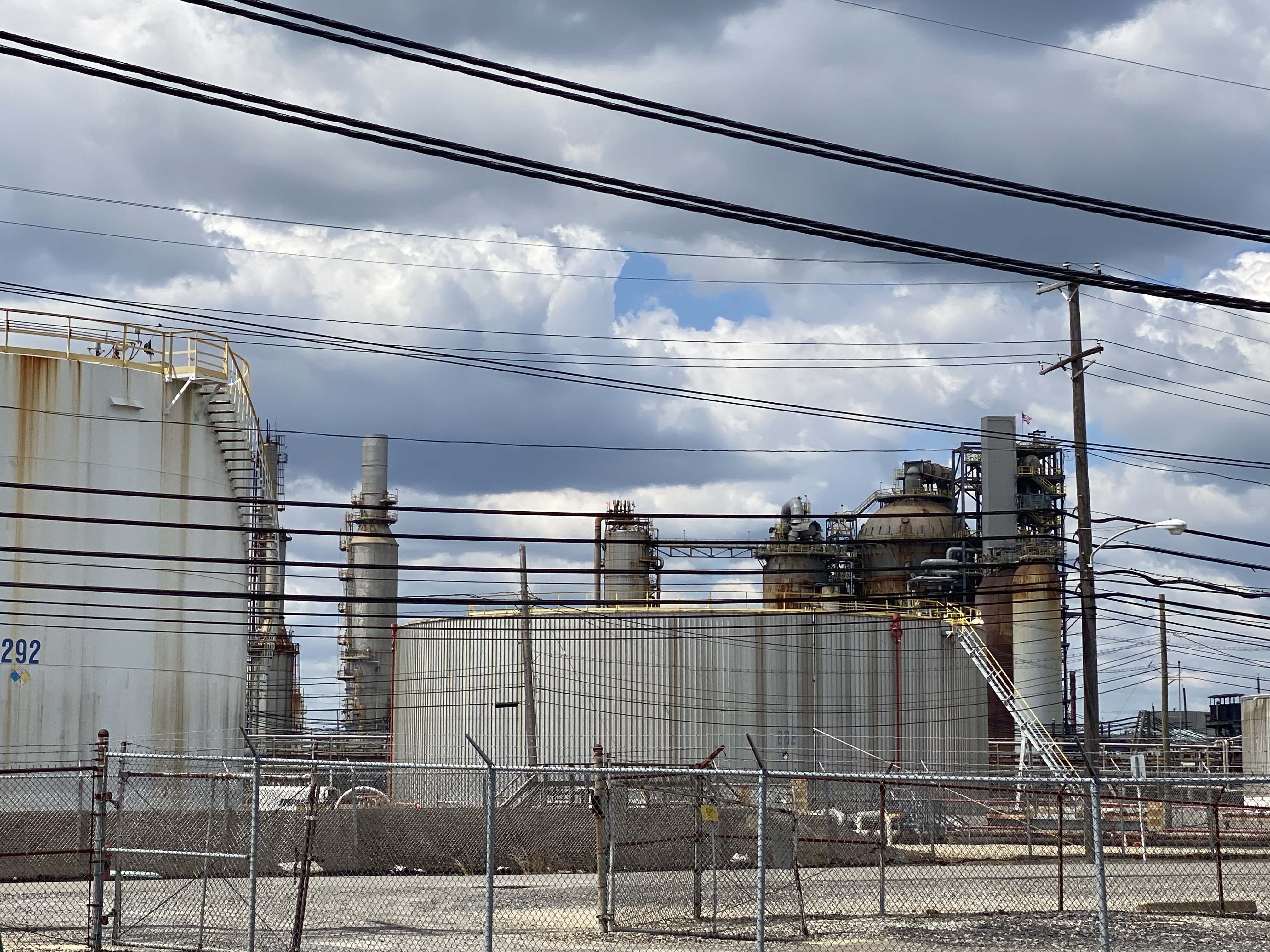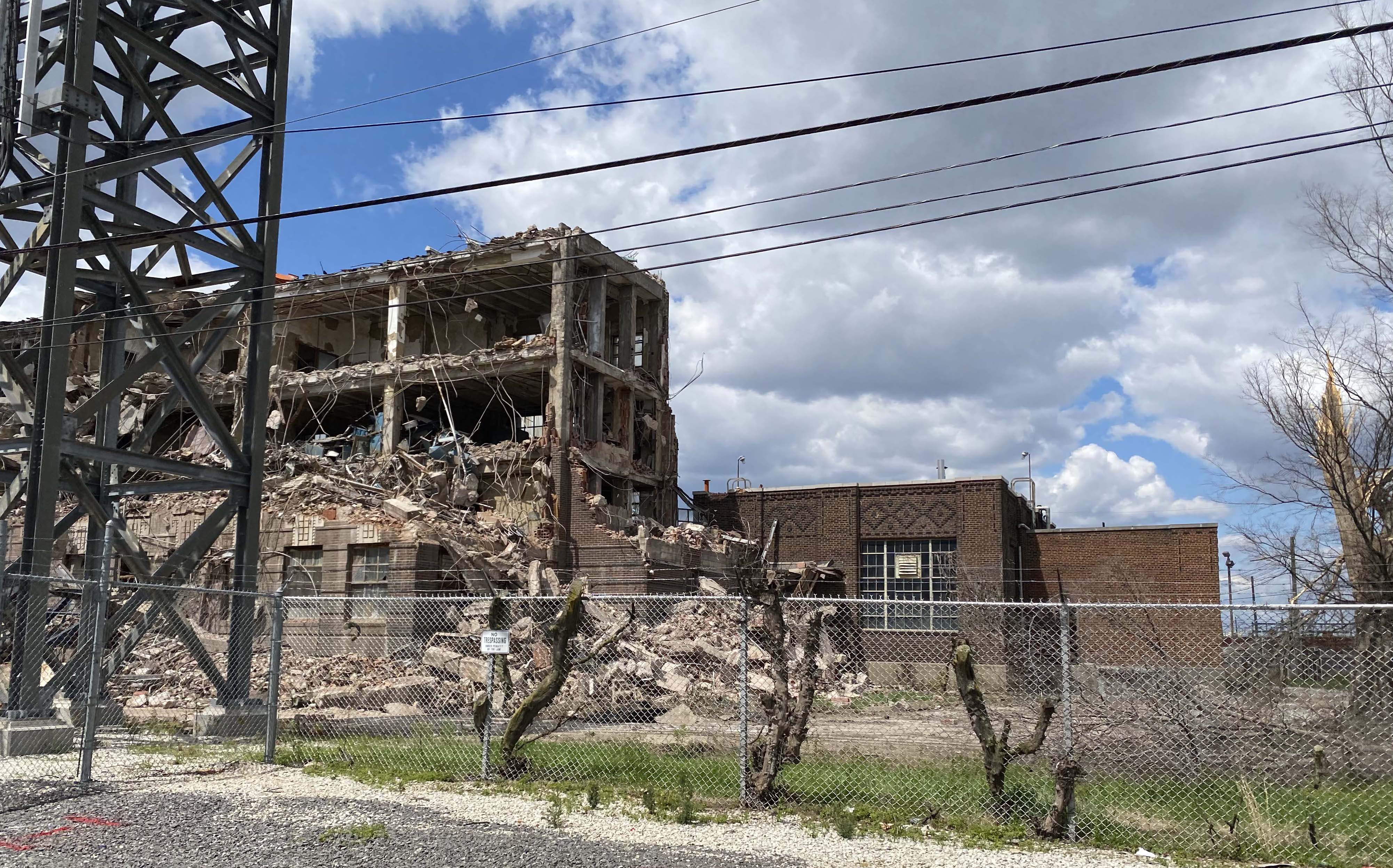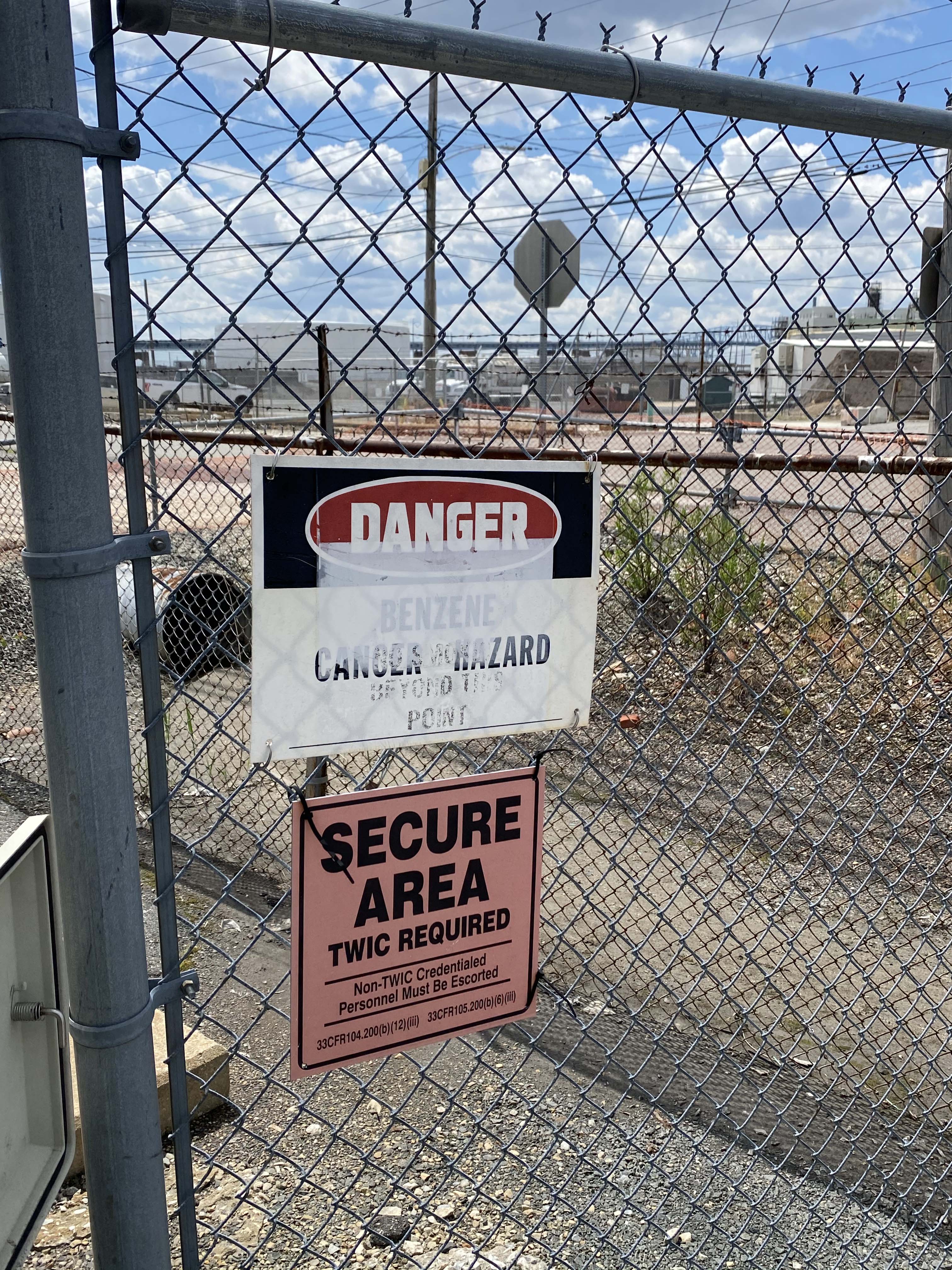From Petrol to Plastics: Re-powering People at Home
August 5, 2021

In this Field Note, Professor Franca Trubiano shares how PPEH funding supported her continuing research on the impacts of fossil fuels on Philadelphia residents' health outcomes. With two undergraduate PPEH Public Research interns—Jessica Lin and Leechen Zhu—she was able to expand on these areas of inquiry. Read on to learn how this research began, and where it is leading.
What is the material, environmental, social, and medical impact of our addiction to fossil fuels, given their ubiquitous use in the construction of our physical environments? Nearly everything that we use to build our homes, schools, hospitals, and workplaces are manufactured using the extraction of fossil fuels. This practice, with origins in post WWII chemical innovation, is neither sustainable nor healthy.
This past spring, working alongside two undergraduate PPEH interns—Leechen Zhu (2021 Penn Graduate in Architecture and Material Science) and Jessica Lin (rising Junior, majoring in Architecture, and minoring in Urban Studies)—our team had the opportunity to further this research on the impact of fossil fuels on environmental health in Philadelphia communities. "From Petrol to Plastics--Re-powering people at home," first originated in 2019 as part of a Kleinman Center for Energy Policy grant centered on ““Fossil Fuel, the Building Industry, and Human Health”. It set out to identify policy-based initiatives for reducing the use of coal, petroleum, and natural gas in the making of building materials and in turn, for reducing associated risks to human health. It also leveraged the research activities of two 2020 Penn Undergraduate Research Mentoring Program (PURM) student researchers. Their work was focused on the added dangers of manufacturing and disposing of said materials for affected communities in Philadelphia’s zip codes 19145 (Girard Estates) and 19146 (Grays Ferry and Graduate Hospital), the full impact of which is clearly legible in the physical, social, and medical landscape of communities living adjacent to the now closed PES refinery.

Former PES refinery site, April 18, 2021. Photo by Bethany Wiggin.
With PPEH support, our team set out to identify the current science of environmental air monitoring in order to identify possible pilot programs deployable in homes, schools, and community centers located in affected communities; the larger goal being the development of an infrastructure capable of sustaining a community plan for air monitoring and for material toxicity and waste assessments. The second goal of the PPEH internship was to identify how the new HILCO plan for the refinery site might continue to import "petrol risks" into the community, notwithstanding the closure of the refinery. Given the amount of impervious pavement being considered, the number of new roads needed for the warehouses, the volume of delivery truck exhaust and particulate matter added to the air and water, and the loss of potential access to the river, the proposed HILCO plan continues to imperil those who live in adjacent communities.
In addition, PPEH activities have inspired my participation in additional funding proposals presently being considered in collaboration with an international team of researchers from Westminster University in London, England. Alongside colleagues in the School of Architecture and Cities, Urban Planning and Life Sciences, the project “Urban Environments for Healthy Communities: a methodological framework for the evaluation of health risk factors in cities,” seeks to develop guidelines for policy change and for the implementation of best practices in planning and environmental health, reducing risks for those who are most vulnerable to foster a more equitable and resilient society. This funding request submitted to the British Academy -- Knowledge Frontiers 2022, will address the Philadelphia communities adjacent to the PES refinery.
The PPEH undergraduate Public Research Internship program offered a significant opportunity to engage with like-minded faculty and students on campus, individuals for whom safeguarding the future of the environment is a daily and pressing priority.

Sign at an entrance to the former PES refinery site, April 18, 2021. Photo by Bethany Wiggin.
Franca Trubiano is Associate Professor and a Registered Architect with l'Ordre des Architectes du Québec. She completed her Ph.D. in Architecture at the University of Pennsylvania in 2005. At present, she is a member of the Mellon Humanities Urbanism and Design (H+U+D) Initiative at Penn where she conducts funded research in the area of ‘Building Ethics and Construction Labor.’ She is also funded by the Kleinman Center for Energy Policy for developing policy issues related to ‘Fossil Fuels, the Building Industry, and Human Health.’ And in 2019, she was appointed to the Penn Fellows program, “a select group of outstanding mid-career faculty members.”
